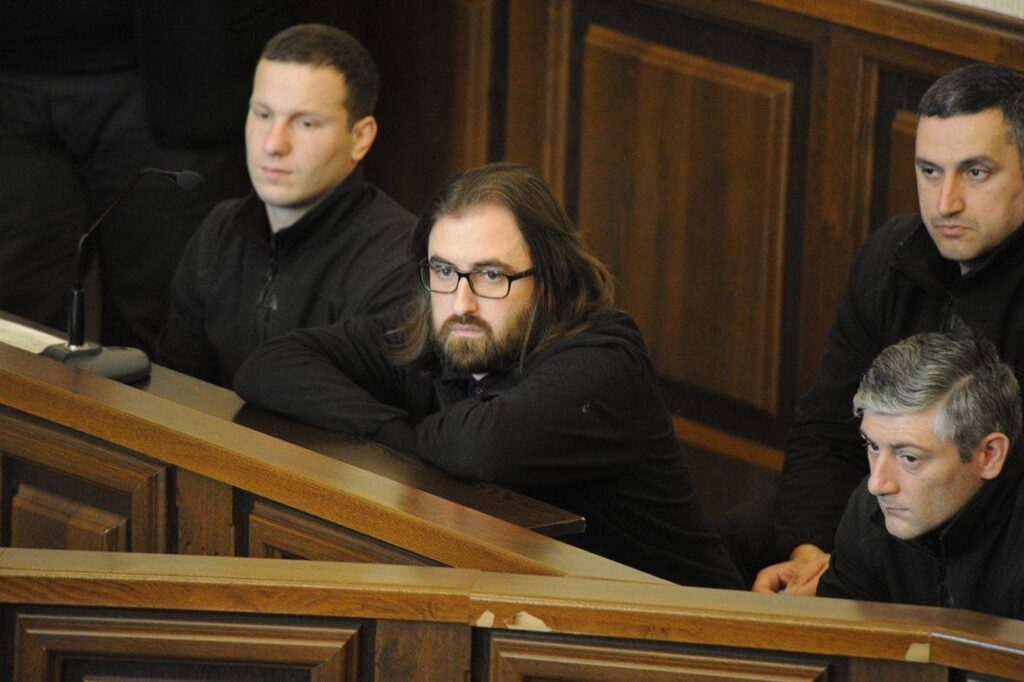The European Court of Human Rights (ECHR) has ruled that Archpriest Giorgi Mamaladze, who was convicted of possession of cyanide for the purpose of murdering the Patriarch’s secretary, received a fair trial in Georgia.
Mamaladze was arrested at Tbilisi International Airport on 10 February 2017 with cyanide in his luggage as he attempted to board a flight to Berlin. He was accused of attempting to poison the secretary-referent of Patriarch Ilia II, Shorena Tetruashvili, and was sentenced to 9 years in prison.
[Read on OC Media: Georgian archpriest found guilty in ‘Church poison plot’]
Mamaladze appealed to the ECHR claiming that he had not received a fair trial, and insisting the cyanide was planted in his suitcase.
‘A member of airport security staff, considered by the courts as a neutral witness, had confirmed that the suitcase could not have been tampered with and that the seal had been intact for the search’, the ECHR said in a statement.
‘Above all, the poison found in the suitcase had not been the only evidence on which Mr Mamaladze’s conviction had been based.’
The statement concluded that the court had found that ‘the proceedings as a whole had been fair’.
A violation of the presumption of innocence
The ECHR did find two violations of Mamaladze’s rights.
This included that his trial was closed to the public despite Mamaladze’s request that it be at least partially open.
The court also found a violation of the presumption of innocence, citing statements made by high-ranking political officials prior to the conclusion of the trial, including the deputy prime minister, explicitly stating that Mamaladze was guilty.
‘The public had been encouraged to believe that Mr Mamaladze had been guilty before the trial court had reached its verdict’, the statement read.
Mamaladze was not awarded any compensation, with the court concluding that their judgement was ‘sufficient just satisfaction’ for any moral damages, though they did order Georgia to pay his legal expenses of ₾9,400 ($3,400).
The Ministry of Justice dismissed the rulings against the government, claiming they were ‘of a procedural nature’ and did not affect the legality of Mamaladze’s conviction.
Despite the ECHR finding that Mamaladze had received a fair trial, one of his lawyers, David Jandieri, hailed the verdict as a victory.
Speaking to the opposition TV station Mtavari, Jandieri claimed the decision was a ‘basis for the reopening of proceedings’.
Mamaladze’s brother, Tornike Mamaladze wrote on Facebook that the authorities should take ‘effective steps to restore justice’.
‘[The state should] release Father Giorgi from prison and allow him to take care of his family and health. We must understand that my brother’s [health] condition is the most difficult! Leaving him in custody could lead to the most terrible, even fatal consequences! Neither the state nor society should allow this!’ he wrote.
Declining health
Mamaladze’s case has been highly controversial, with some claiming he had been framed.
Several prominent figures in the Church, including metropolitan Petre Tsaava, who was later stripped of his position, suggested that Mamaladze’s case was an attempt to distract people from corruption within the institution.
Tsaava claimed that the apparent target of the cyanide plot, Shorena Tetruashvili, had fostered a ‘shadow government’ within the Church, referring to her as the ‘Grey Cardinal’. Tetruashvili, who usually remains out of the public eye, denied both claims.
Mamaladze’s family, including his brother, have also been highly vocal in advocating for his release, including on medical grounds. They have on several occasions stayed in tents in front of the Patriarchate and Parliament in protest against his imprisonment.
In February 2019, Mamaladze was hospitalised after his health deteriorated.
A pardon for Mamaladze has been supported by several local human rights organisations as well as the Public Defender.
These appeals have failed, however, to move President Salome Zurabishvili to pardon the archpriest. In January 2020 the President said that in addition to being judicially unjustifiable, a pardon for Mamaladze would 'contribute to further polarisation in society’.
The same day, the Social Justice Centre stated that Mamaladze has been ‘paralysed for several months and has been deprived of the ability to move properly’.




 3 November 2022
3 November 2022



